Busy time in last 24 hours for Peterhead
Busy time in last 24 hours for Peterhead RNLI lifeboat crew
Busy time in last 24 hours for Peterhead RNLI lifeboat crew
Busy time in last 24 hours for Peterhead
Busy time in last 24 hours for Peterhead RNLI lifeboat crew
Abraham “Bram” Stoker (8 November 1847 – 20 April 1912) was an Irish author, best known today for his 1897 Gothic horror novel Dracula.
There are many stories about how Bram Stoker came to write Dracula, but only some of them are true. According to his son, Stoker always claimed the inspiration for the book came from a nightmare induced.
Stoker was a regular visitor to Cruden Bay in Scotland between 1893 and 1910. His month-long holidays to the Aberdeenshire coastal village provided a large portion of available time for writing his books.
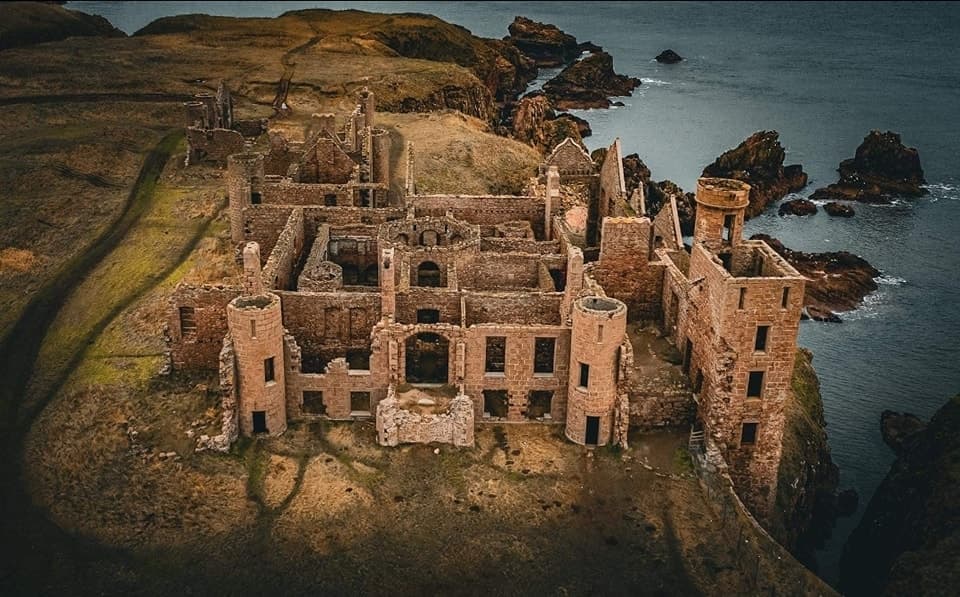
Two novels were set in Cruden Bay: The Watter’s Mou’ (1895) and The Mystery of the Sea (1902).
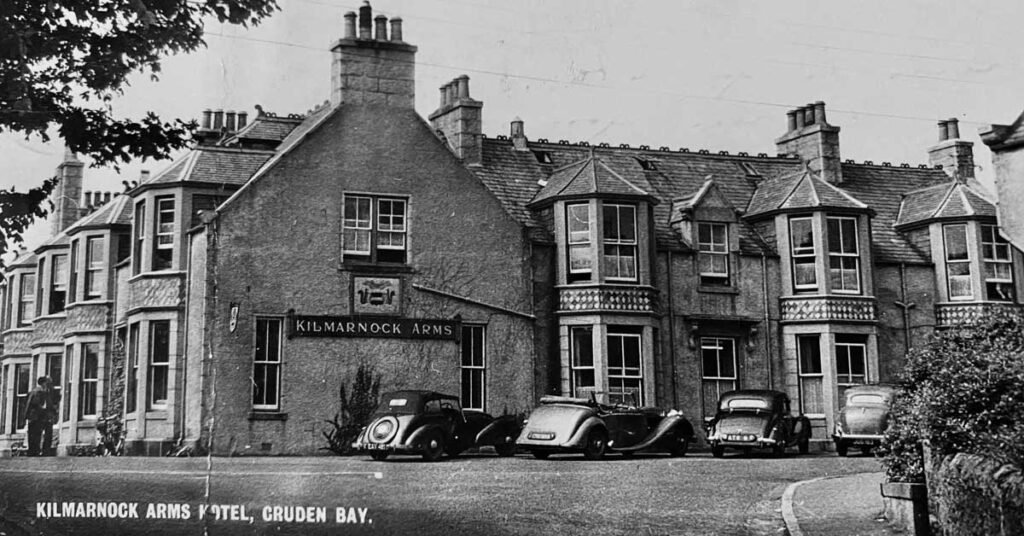
He started writing Dracula here in 1895 while in residence at the Kilmarnock Arms Hotel.

The guest book with his signatures from 1894 and 1895 still survives.
The nearby Castle (also known as New Slains Castle, Dracula Castle) is linked with Bram Stoker and plausibly provided the visual palette for the descriptions of Castle Dracula during the writing phase in 1897.
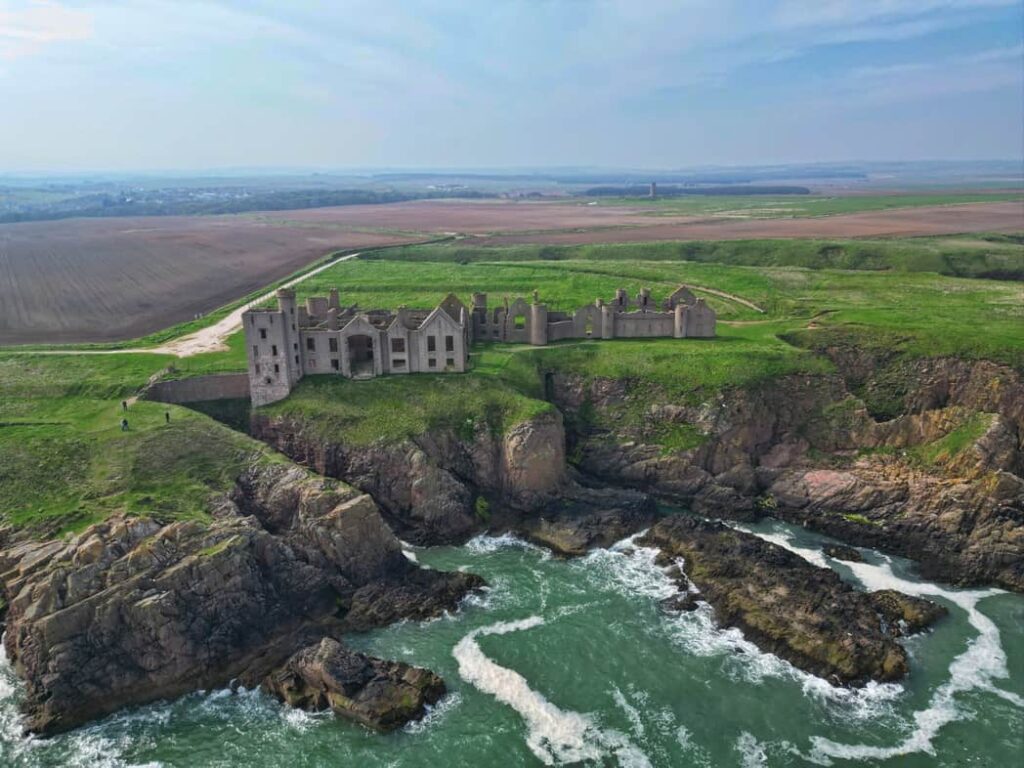
A distinctive room in Castle, the octagonal hall, matches the description of the octagonal room in Castle Dracula.
The early chapters of Dracula were written in Cruden Bay, and Slains Castle possibly provided visual inspiration for Bram Stoker during the writing phase.
This is why the other name of the castle, Dracula castle.
The early chapters of Dracula were written in Cruden Bay, and Castle possibly provided visual inspiration for Bram Stoker during the writing phase.

The Scotland castle thought to have inspired Bram Stoker’s Dracula has been awarded listed status by Historic Environment Scotland.
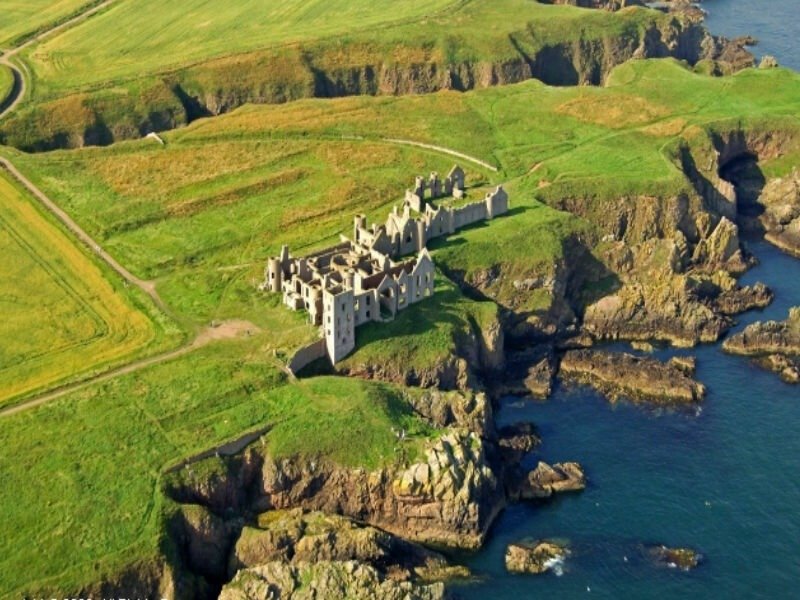
In 1916 the 20th Earl of Erroll, Charles Gore Hay sold the Castle and it’s contents to Sir John Ellerman, the shipping magnate. This ended 300 years of the Earls of Erroll staying at Slains. The surrounding estate and farmland were not productive enough to support the castle, especially after a period of agricultural depression and after death duties (inheritance tax) were introduced.
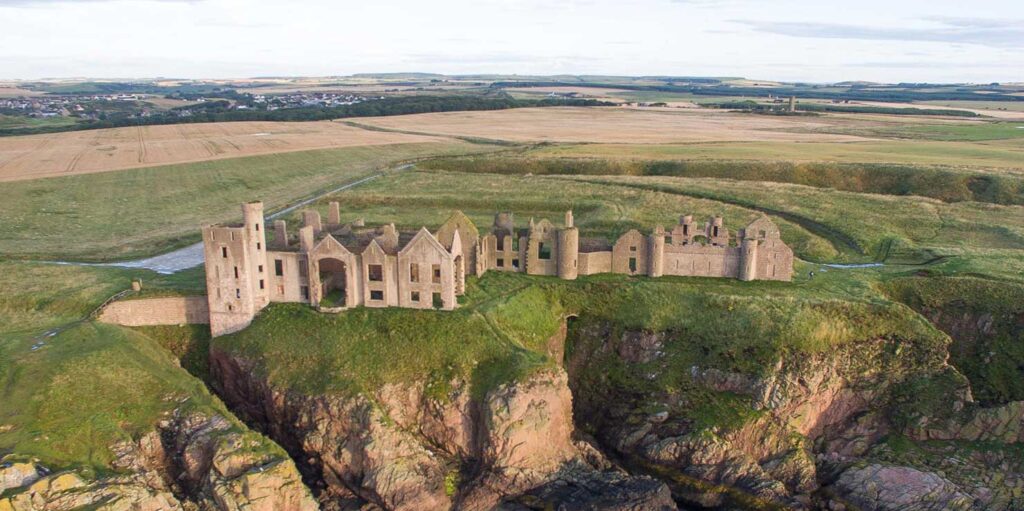
In 1925 the Castle was abandoned and the roof was removed to avoid paying taxes. Valuable dressed stone was also taken away and the castle has been deteriorating ever since. It is now quite a surprise to see old photos of how grand Slains Castle used to look. However there are modern-day plans to convert the castle and grounds into 35 apartments.

To find the Slains Castle, follow signs for Cruden Bay. This picturesque village is 26 miles north of Aberdeen and has a lovely harbour and beach well worth exploring.
Impressive architecture is still clearly visible today as you roam the castle grounds and you can climb upstairs to the lookout and downstairs to the basement.
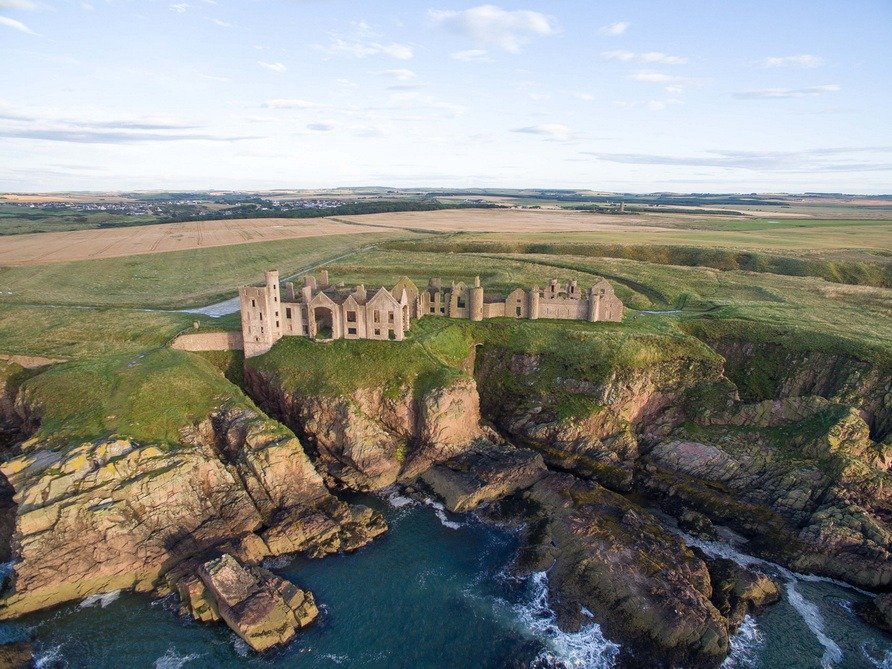
There was once marble steps, fourteen bedrooms, tennis and croquet lawns, stables, a walled garden, a kitchen with firepits and seven main reception rooms! As I walked through the castle I wondered about which room I was in and who might have stayed in it in the past.
Slains Castle is free to enter and the views are incredible.
I hope you visit soon!
